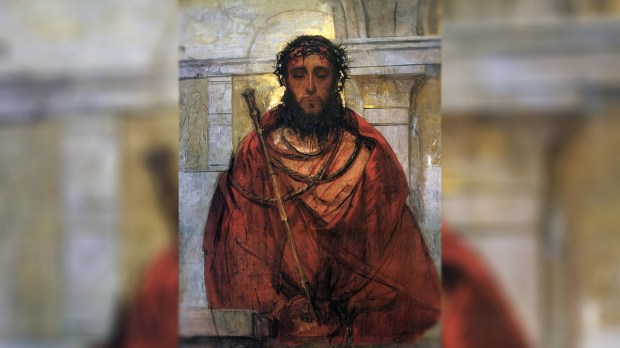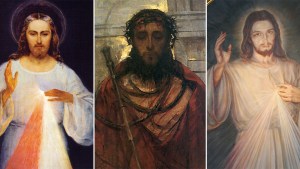The coming of Christ the King in glory (Mt 25:31-46) will culminate in one curious act: separating the sheep from the goats. If most of our life we have lived like goats, the parable urges us to change our ways. This enthroned heavenly King we worship makes that radical change possible.
Allowing God to reign
“We can only resemble God,” observed Dominican Fr. Antonin Sertillanges, “by casting aside the limitations of our personality so as to allow God himself to reign in us.” To cast aside the limitations of our personality is to separate sheep from goat in ourselves so that we can proclaim with the sheep in the most famous psalm, The Lord is my shepherd (Ps 23:1). Jesuit Fr. Cornelius a Lapide (+1637) describes a goat as “fierce, unclean, lascivious; it butts with its head, and walks in precipitous places — and it is quarrelsome.”
But it’s not easy to cast aside the limitations of our personality. A counsel of Cardinal Ratzinger really helps here: “God’s kingship [is] a rule of love that seeks and finds man in ways that are always new.” A rule of love. Maybe the reason why the sheep in the parable behave in such loving, caring, giving, compassionate, other-directed, generous, selfless, kindly ways is because they themselves were once the lost sheep … and the Good Shepherd sought and found them. And now they cannot help but to live from the memory of that overwhelming mercy, faithfully practicing the rule of love that rescued them by acting mercifully toward those most destitute.
The kingly are kind
The most outstanding attribute of the Good Shepherd King is that he wants to share his very self — his life and being — with us. “God’s sovereignty,” says Fr. Hans Urs von Balthasar, “is not manifested in keeping what belongs to him for himself, but in abandoning it.” That is why sacrificial self-giving stands as the hallmark of our life as well … if we want to be like God.
We ourselves become like Christ the King when our loving self-surrender is offered in the service of those in need. St. Peter Chrysologus comments that the person “who lends to a poor person makes the Judge himself his debtor.” Our sins of omission incur consequences we might not have considered:
That bread which you hold back belongs to the hungry. The naked claim that garment which you are keeping in your closet. That shoe which is moldering away at home is his who is shoeless ( St.Basil).
Inheriting the Kingdom
The hungry, the thirsty, the stranger, the naked, the ill, the imprisoned are meant to be like sacraments for us: visible signs leading us to invisible grace. “A poor man is the way to heaven; begin to make donations if you do not wish to go astray” (St. Augustine).
A moving example: St. John Paul II’s play Our God’s Brother tells the true story of Adam Chmielowski (who was canonized in 1989). In one scene, Adam spots in the darkness a disabled homeless man who is starving. He says to him, “Come, my friend …. Your hands …oh, you’re freezing …. You cannot walk …. Well, come!”
With that, Adam takes hold of the man, lifting him up so that he almost carries the pauper on his back. Then he begins to make his way home. And as he goes, he says to the man whom he is bearing: “Come. You have saved me.”
~
Find Fr. Peter John Cameron’s reflection on the Sunday Gospel each week here.
And find his series of brief reflections on prayer here.


